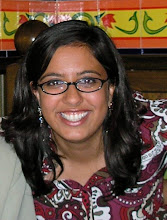The closer I get to graduation, the more I worry I may be an anachronism. I dream of delving into long-form narrative journalism at a time where it seems the public’s attention span is increasingly limited to blog posts and sound bites.
The Internet has forced journalists to write shorter and faster, but, as journalist and bestselling author Mark Bowden pointed out, the internet also offers something newspapers and magazines do not – infinite space.
“We swim in a sea of information that’s as wide as the globe, but about an eighth of an inch deep,” Bowden said. “If you’re human, you’re thinking about the how and why behind a headline,”
Clad in a simple navy blue turtleneck and round gold glasses, Bowden spoke to my complex story writing class yesterday. His tips quelled some of my fears about entering an industry in transition and assured me that the narrative hasn’t lost its power.
Behind every breaking news tweet and cable news ticker is someone who wants to explain themselves. “People are dying to tell their stories,” Bowden said.
The key to being a successful narrative journalist is finding a story’s dramatic center, Bowden said. Zoning board meetings are dull. But talk to the man who wants to build a three-foot high fence in his backyard and the neighbor who’d have to live with it, and suddenly you’ve got characters and drama.
Bowden recounted his experience going on a drug raid with Anne Arundel County police. A young reporter working for the Baltimore News-American, he didn’t trust himself to challenge the police’s characterization of the raid at the morning press conference. So he turned the raid into a narrative and described what he saw. And of all the pieces written about that police press conference, I’ll bet his was the most-read.
The key to drawing readers is to make the subject matter accessible. Be ignorant, Bowden said, only half-jokingly. Ask the stupid questions, because chances are, readers are no more experts at technical scientific principles or covert military operations than you are, he said.
A good reporter stays on track by constantly sketching story structure. This tells you what you need to know, but more important, what you don’t. While Somali anger at U.S. forces was important for context, at its heart, "Black Hawk Down" was a narrative describing battle.
It’s easy to lose sight of narrative in the inverted pyramid world of journalism. Newspapers tend to tell stories backward, Bowden said. A court story will lead with the verdict, describe the trial and mention the crime, sprinkling details where necessary. But sometimes, straying from this inverted pyramid offers the most compelling story.
After all, when a reader finishes a story, it’s not the beginning, but the end that’s freshest in their minds. To exercise his creative muscles, Bowden said he sometimes likes to rewrite stories with the lede at the end.
So, where can I find the story that will become the next nonfiction bestseller?
First, find something that interests you, Bowden said. Don’t worry if it’s outside your area of expertise or if it lacks timeliness. Write for story, not for setting, he said. (Though Mark Bowden’s editors probably don’t worry about nut grafs the way the editors of this budding journalist will.)
But it’s a lot easier for an editor to reject an idea than it is to kill a fully written, thoroughly reported story sitting in their hands.
Although the Internet means that stories aren’t told with words alone, Bowden’s advice reminded me why I’m excited to enter this field. Good stories will always need to be told.
After all, how many professions enable you to walk around in other people’s lives and let you understand their minds, their thoughts, their dreams, he said with a smile.
Wednesday, April 15, 2009
Subscribe to:
Post Comments (Atom)





2 comments:
As a narrative-loving journalist who's taking a buyout May 1 after 31 years in the business, I'm happy to see someone at the beginning of a career thinking in these terms. I also believe storytelling will survive, but I can't say where. If you'll allow an old-timer to offer a little friendly advice, I'd like to encourage you not to let the love of narrative to divert you from the complicated facts that some narrative writers shy away from. Substance has to trump form, and if that sometimes means inverted pyramid, that's OK.
Thanks for the tip David. I hope narrative survives in some type of print form because nothing beats turning the pages of a magazine or book. (And I know I'm not the only one of my generation who thinks so).
I love that, unlike fiction narrative, the facts for narrative journalism are already out there. All we have to do is find them and figure out how to organize them. By no means is that easy, but that act of organizing is so much fun.
Post a Comment